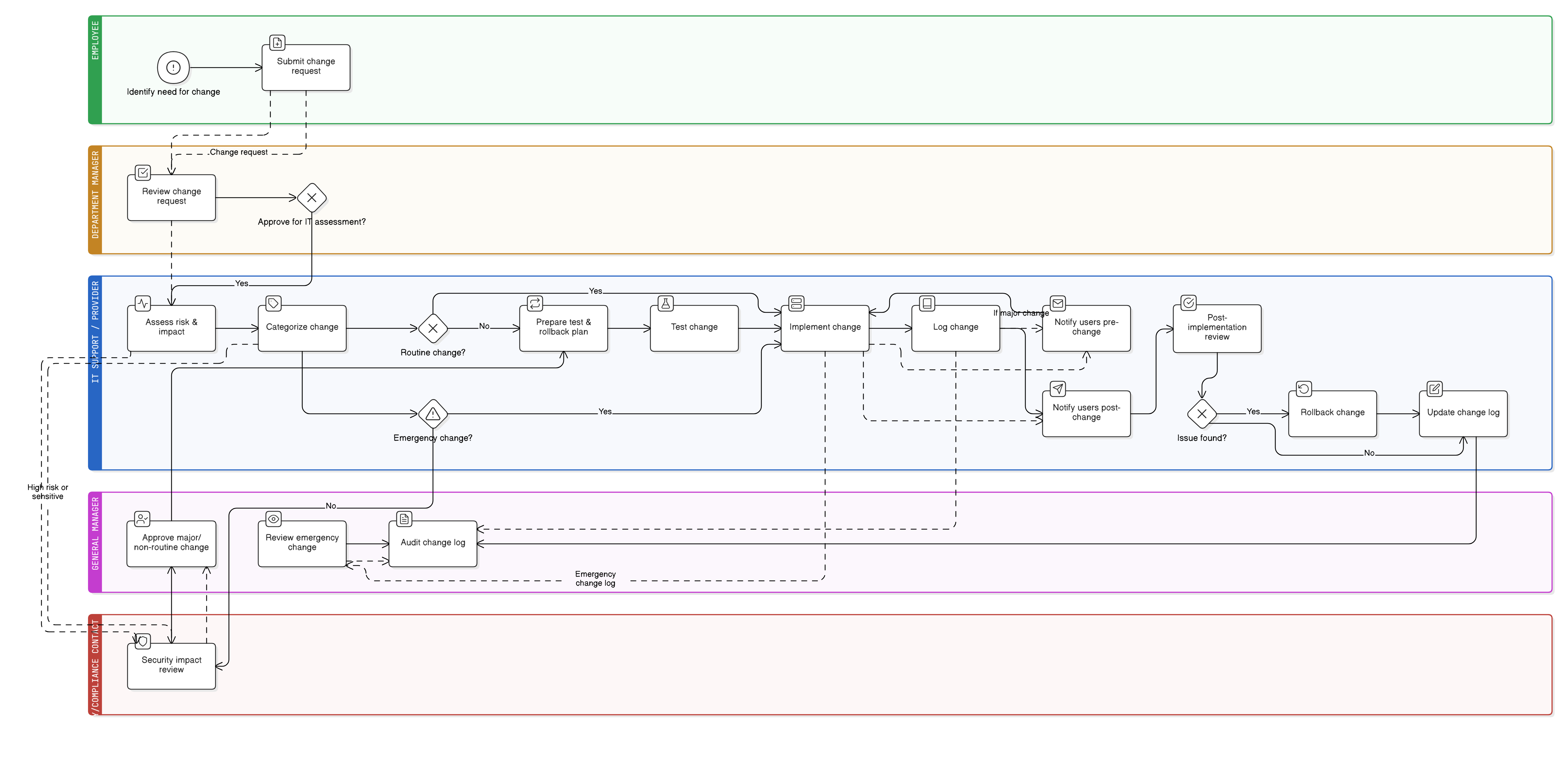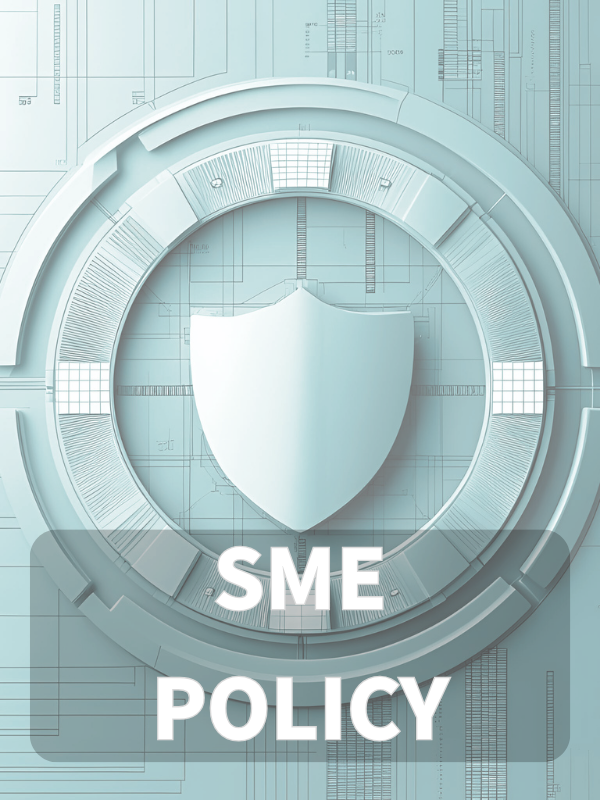Overview
This SME-focused Change Management Policy formalizes a risk-based approach to planning, approving, and documenting IT and business system changes, ensuring operational continuity and regulatory compliance while remaining accessible for organizations with limited IT resources.
Risk-Based Change Controls
All changes are risk-assessed, documented, and authorized to maintain business continuity and security.
Streamlined for SMEs
Simplified roles and clear procedures allow small organizations to meet compliance without dedicated IT teams.
Inclusive Responsibilities
Covers staff, outsourced IT, and executive oversight for broad accountability and clear approval rules.
Supports ISO 27001 Certification
Aligns with ISO/IEC 27001:2022 requirements, helping maintain audit readiness and regulatory compliance.
Read Full Overview
Policy Diagram

Click diagram to view full size
What's Inside
Scope and Roles for SMEs
Change Request and Approval Process
Change Log and Documentation Rules
Testing, Rollback, and Risk Assessment
Exception and Emergency Change Handling
Post-Change Review Requirements
Framework Compliance
🛡️ Supported Standards & Frameworks
This product is aligned with the following compliance frameworks, with detailed clause and control mappings.
| Framework | Covered Clauses / Controls |
|---|---|
| ISO/IEC 27001:2022 | |
| ISO/IEC 27002:2022 | |
| NIST SP 800-53 Rev.5 | |
| EU NIS2 | |
| EU DORA | |
| COBIT 2019 |
Related Policies
Governance Roles And Responsibilities Policy-SME
Defines approval authority for changes.
Access Control Policy-SME
Ensures that access modifications resulting from changes are documented and implemented correctly.
Onboarding And Termination Policy-SME
Coordinates changes related to role transitions and access provisioning.
Backup And Restore Policy-SME
Ensures that rollback and recovery steps can be executed if a change fails.
Incident Response Policy-SME
Governs how failed or unauthorized changes are treated as security incidents.
About Clarysec Policies - Change Management Policy - SME
Generic security policies are often built for large corporations, leaving small businesses struggling to apply complex rules and undefined roles. This policy is different. Our SME policies are designed from the ground up for practical implementation in organizations without dedicated security teams. We assign responsibilities to the roles you actually have, like the General Manager and your IT Provider, not an army of specialists you don't. Every requirement is broken down into a uniquely numbered clause (e.g., 5.2.1, 5.2.2). This turns the policy into a clear, step-by-step checklist, making it easy to implement, audit, and customize without rewriting entire sections.
Auditable Change Log
Every change is tracked with outcomes and rollback notes for accountability and easier regulatory audits.
Emergency Change Handling
Allows immediate action for critical issues, then requires rapid logging and management review to maintain control.
Rollback and Recovery Readiness
Mandatory rollback plans and tested backups minimize risk from failed changes or technical errors.
Frequently Asked Questions
Built for Leaders, By Leaders
This policy was authored by a security leader with 25+ years of experience deploying and auditing ISMS frameworks for global enterprises. It's designed not just to be a document, but a defensible framework that stands up to auditor scrutiny.
